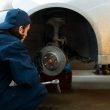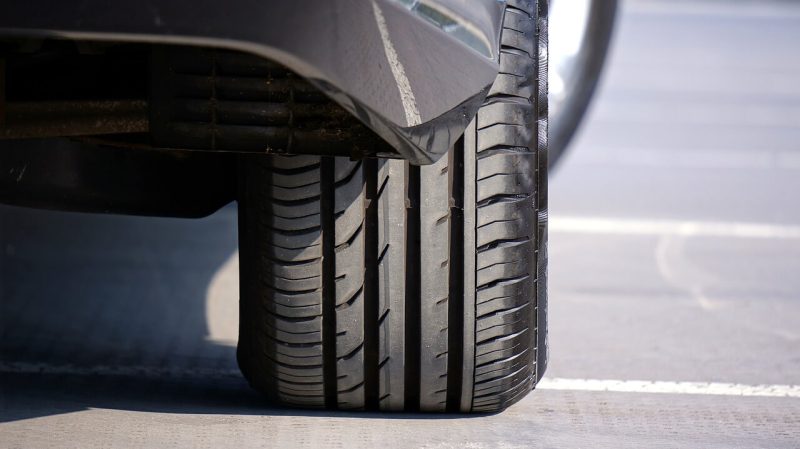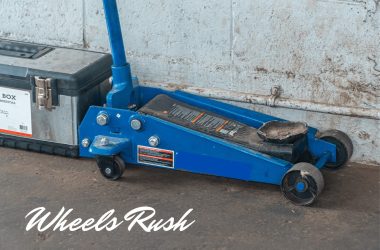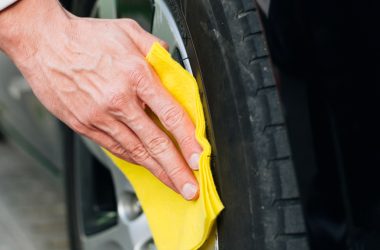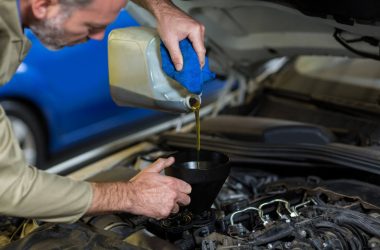Yesterday, while returning home in my car, I experienced a tire puncture. The mechanic told me that the tires needed to be replaced right away. This was confusing as they were brand new! In this article, I will tell you why do new car tires wear out so fast and what safety measure drivers should take to avoid them.
Tires play a main role in the performance of any vehicle. Tires are essential for supporting your car’s performance, being the link between you and the road. They provide traction, reinforce braking power and stability when steering, as well as carrying heavy loads with ease.
Therefore, it is essential to routinely maintain and care for your tires in order to guarantee continued safe handling, prolonged tread life, enhanced fuel efficiency, as well as a comfortable ride.
With the proper care, tires can last up to 80,000 miles. However, some types of tires are designed for faster wear and tear over time. The rubber compounds used in tires have a limited lifespan, and manufacturers use such compounds for more road grip and traction.
Table of Contents
Why do new car tires wear out so fast
Several factors can play a role in how fast your tires wear.
Soft rubber compound
The soft rubber compound is one of the main reasons why new car tires wear out so quickly. The softer rubber compound offers superior traction on the road and a more comfortable ride, but it is also likely to wear out quicker than when using harder rubber.
Aggressive driving style
Aggressive Driving style is another significant factor in tire wear. If you are constantly accelerating, braking hard, and taking corners at high speeds, your tires will bear the brunt of this abuse and have a shorter lifespan.
Air pressure
One of the reasons why new car tires may wear out faster than expected is that they are often underinflated. This can cause the tire to lose shape and its treads to wear down quickly. If you want to increase your car tire’s lifespan, it is important to check the air pressure regularly and inflate them as needed.
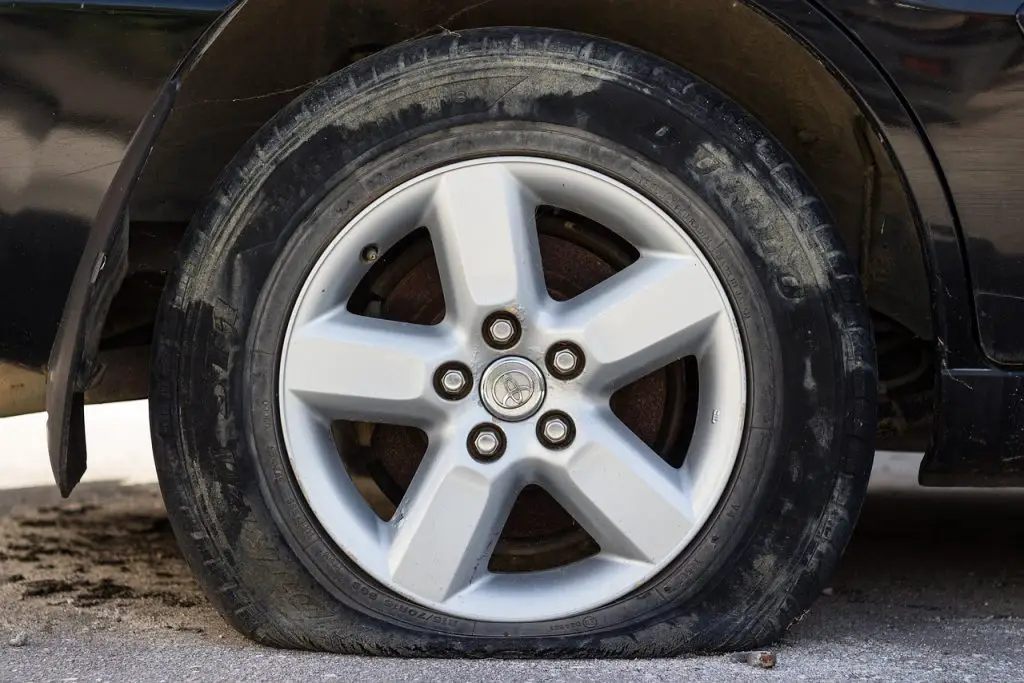
Less maintenance
Less maintenance, such as regular tire rotations and alignment checks, can also lead to quicker tire wear. Properly caring for your tires is essential to get the most out of them. Regularly inflating your tires and regularly checking their tread depth can reduce tire wear.
Bad Suspension
Bad suspension can also contribute to your tires wearing down faster. A faulty or unbalanced suspension can cause uneven tire wear on the inside or outside of the tread. This can increase tire pressure and put more strain on the rubber compound, leading to quicker degradation and a shorter lifespan for your car tires.
Power Steering
Power steering can be an additional factor in making your tires wear out quicker. With power steering, the engine needs to exert more effort and strain on the wheels, which can result in accelerated wear compared to driving without it.
Especially for vehicles that have electronic power steering systems, the heavier weight compared to traditional hydraulic ones is quite noticeable. However, power steering systems can provide many years of reliable service with proper maintenance and care.
Environmental factors
Environmental factors such as poorly maintained roads and climate can also impact tire wear. Hot climates with a shining bright sun can cause the rubber to degrade faster due to heat, while cold weather can cause the rubber to be stiffer and more prone to cracking.
Poorly maintained roads can also increase friction on the tires, making them wear down more quickly.
Extreme Trails
Extreme trails are the last significant factors that can cause your car tires to wear out faster. People who like to live on the wild side and take their car off-road, bear in mind that this type of driving can put more stress on your tires when compared to sticking mostly to paved roads.
This means that the lifespan of your tires will likely decrease significantly. For a secure and successful off-roading trip, never forget to inspect your tires regularly for any signs of deterioration or damage. Properly maintaining them will help ensure a longer lifespan for your new car tires.

The above mention reasons are answer for why do new car tires wear out so fast?
Why are tires made of softer rubber compound
Soft rubber compounds in tires are used to improve grip and traction, particularly in wet conditions. The softer a tire’s rubber compound, the better its ability to conform to the road surface and generate maximum contact area. This helps ensure that water is displaced quickly, providing improved levels of safety and performance.
Additionally, softer rubber compounds provide increased cushioning when driving over rough surfaces or potholes, reducing road noise and vibrations while enhancing passenger comfort. Softer rubber compounds also help reduce tire wear due to their greater flexibility, improving fuel efficiency and longer life for your tires.
As such, it is essential to choose the right type of tire with a soft enough compound that ensures both safety and performance on the roads.
Overall, softer rubber compounds in tires provide improved levels of safety, comfort, and fuel efficiency. By selecting the correct type of tire with an appropriate softness, you can ensure improved road performance while reducing wear and tear on your vehicles.
Also Read: Best Tires for Toyota Tacoma
How do check if tires need to replace
Ensuring your tires remain in optimal condition is paramount for the safety of you, those around you and other drivers. Worn treads can severely diminish the performance of your car while also posing an increased risk of accidents – so changing them regularly should be part of any vehicle maintenance plan. For optimal tire performance, it’s essential to check them regularly for signs of wear and tear. These are a few things to look after.
- Tire Pressure – This should be monitored frequently so that it remains at the ideal level for your vehicle. In case one or more of your tires falls below this level, consider replacing them immediately!
- Check tread depth – Worn tires can impact the handling and braking of your vehicle, so check tread depth to ensure that all tires still have adequate tread. Measure each tire’s depth and ensure it meets the manufacturer’s recommended specifications.
- Inspect for damage – Visually inspect your tires for signs of damage or wear, such as cracking, bulges, uneven wear, or punctures. Any visible damage should be addressed immediately and may require a tire replacement.
- Check for alignment and balance – Uneven wear can indicate that your tires need to be balanced or aligned. Allow a competent technician to inspect the alignment of your vehicle’s wheels, and make any necessary adjustments so that you can ensure extended tire life.
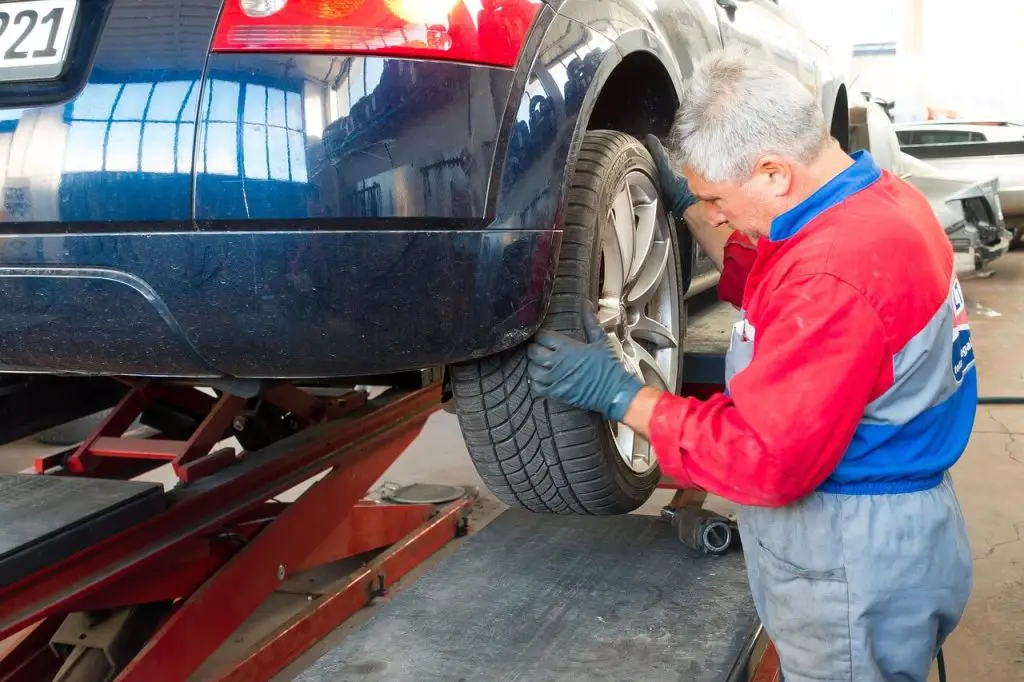
How to Prolong New Tire Life?
Proper maintenance and care are essential for prolonging the life of new tires. Follow these helpful tips to ensure that you receive maximum usage and value out of your new tires.:
- Maintain Proper Tire Pressure: It’s essential to check the pressure in your tires regularly, as an under-inflated tire will wear faster than a properly inflated one. Regularly monitoring your tire pressure is essential for a reliable ride. Be sure to utilize a superior gauge and adjust the air levels consistent with your vehicle manufacturer’s guidelines on at least a monthly basis.
- Rotate Tires Regularly: Regularly rotating your tires will ensure they all wear evenly and reduce premature wear due to misalignment or imbalance. To ensure your car’s tires are performing optimally, specialists suggest having them rotated every 6k to 8k miles. This is dependent on the kind of tire and automobile you have.
- Get Your Tires Balanced: Balancing your wheels is another essential part of prolonging the life of your tires. This helps reduce vibration or irregular movement that can cause premature wear in tires. Most experts recommend getting your wheels balanced at least once a year — more often if you notice any issues with how they are driving.
- Avoid Overloading: Overloading your vehicle puts an extra strain on its tires and can lead to faster tread wear and reduced tire life. Review the manufacturer’s specifications for maximum payload, as exceeding these limits will stress your tire’s construction and shorten its lifespan.
- Avoid Driving in Extreme Conditions: Extreme conditions such as high heat or cold can damage tires, so it’s important to be mindful of the weather when driving. Hard cornering, accelerating, and braking should also be avoided, as these activities can put extra strain on your tires.
To ensure your new tires provide the best performance and last longer, apply these useful tips!
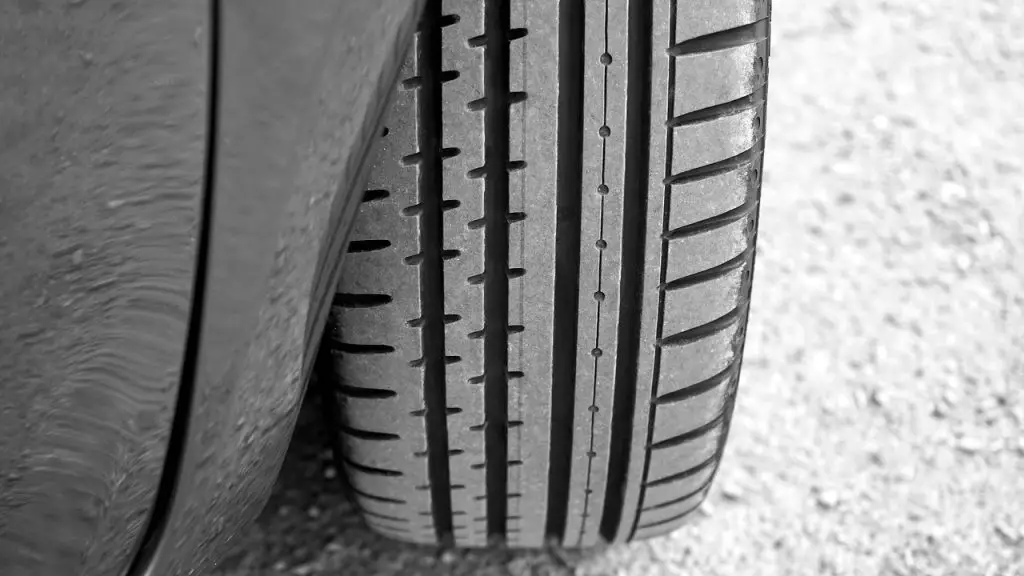
Do front tires wear out faster?
The answer to this question is yes; front tires usually wear out faster. The reason for this phenomenon is that the majority of the car’s load shifts to its front axle during deceleration and acceleration processes. Therefore, the front tires bear more of the load and suffer more wear than the rear tires. Additionally, most vehicles are designed with a slight angle on their suspension system that causes the front tires to lean inward at an angle which further contributes to more rapid tire wear compared to the rear wheels. The extra strain on the front tires can lead them to wear down quickly if not properly maintained.
Why Should I Rotate Tires?
Tire rotation is an important part of vehicle maintenance that provides several benefits. It helps ensure that your tires wear evenly and will last longer, as well as improving traction and ride comfort. Additionally, tire rotation can help reduce road noise, improve fuel efficiency, and prevent handling problems due to unevenly worn tires. Rotating your tires make your vehicle runs in peak condition, tires should be rotated every 6,000 to 8,000 miles (or as per the manufacturer’s recommendation). If you don’t rotate your tires regularly, they may wear prematurely or become unsafe. Regularly rotating your tires not only increases their life of them and saves you money but also enhances your driving experience.
Overall, tire rotation is an important part of car maintenance that can provide numerous benefits. To ensure your tires are performing at their best and will last for years to come, it is crucial to rotate them routinely. You must manage some time to rotate your tires regularly to get the most out of them! It’s well worth the effort.
What Is the Ideal Pressure of Car Tires?
The tire manufacturer determines the ideal pressure of car tires and can vary depending on the make and model of your vehicle. Generally, most passenger cars run best when their tires are inflated to between 30 and 35 PSI (pounds per square inch). To find the exact ideal pressure for your car’s tires, consult your owner’s manual or look for a sticker inside your vehicle’s door frame or glove box. It’s important to note that this figure may also differ for winter as some cars require higher pressures during cold weather.
In addition to consulting the manual, it’s also important to remember that overinflated tires will wear down faster than properly inflated ones. This is because more of the tire is in contact with the ground, causing increased friction. Overinflated tires also increase the risk of a blowout due to higher internal pressures. Underinflated tires can increase rolling resistance, reduce fuel efficiency and cause uneven tread wear.
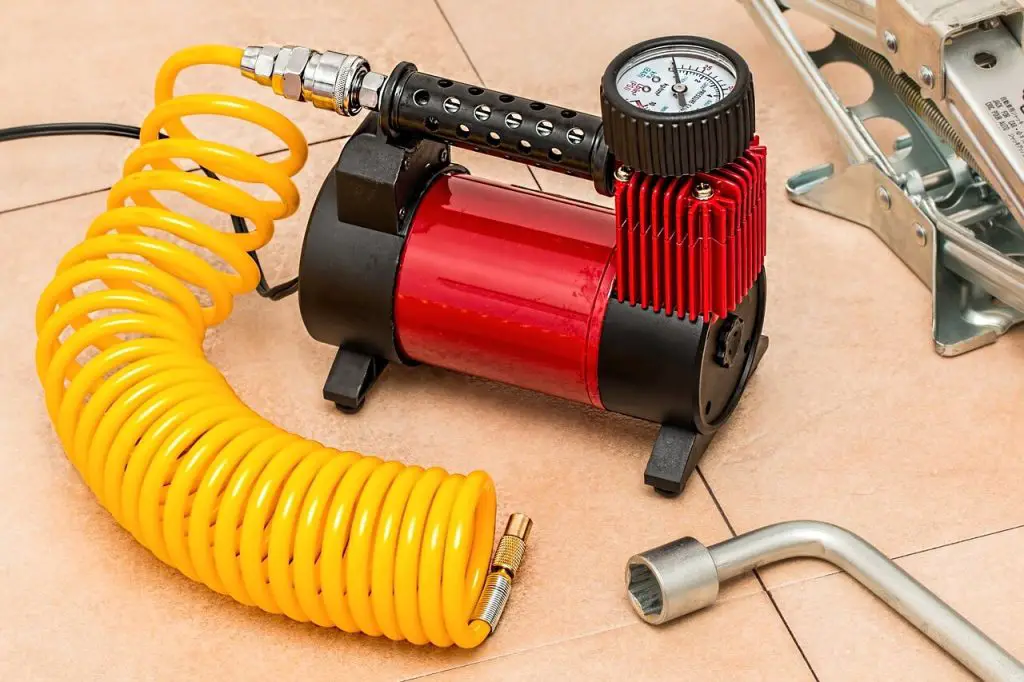
It’s important to check your tire pressure at least once a month and before any long trips. If you find that your tires are over or underinflated, use an air compressor or hand pump to adjust them accordingly until they reach the ideal pressure indicated by your owner’s manual. It’s also wise to keep a few spare valve caps in case one goes missing when inflating your tires.
Does driving fast wear out tires?
The answer is yes because the speed at which one drive affects the wear and tear on the tires. When driving fast, more force is exerted on the tires as they spin faster to keep up with the vehicle’s increased velocity. This can cause tire parts to be stressed out more quickly, leading to premature wear and tear. Long-term damage and failure may even occur if a driver consistently drives at high speeds. It is important for drivers to be mindful of their speed limits to extend their tires’ life.
Also Read: Temporary Fix for Stuck Brake Claiper
FAQ’S
Do Tires Have Speed Limits?
The short answer is no. Manufacturers determine the speed limit of a tire, requiring no enforcement from governmental laws. Tire speed ratings are usually found on the tire’s sidewall, and they list the maximum operating speed for that particular tire type. Though you should never drive beyond the speed limit, equipping your vehicle with tires that match its top speed is essential for ensuring a safe ride. As such, it is highly recommended to check a tire’s speed rating before purchasing them to make sure they can handle maximum speeds on the road. Doing this will give you peace of mind knowing that your journey won’t be compromised by inferior tires!
Can You Patch your Car Tires?
Yes, you can patch your car tires. However, it is important to understand that a tire patch is generally considered only a temporary fix and should be done as part of an emergency or when regular maintenance or repair services are unavailable.
The process of patching car tires begins with inspecting the inside of the tire for any punctures or damage. It is imperative to inspect the puncture and ensure it is not too wide to be patched, while also ensuring that the area surrounding it is smooth and clear of any debris. Any debris should be removed from the tire before patching can begin.
How long should my car’s first set of tires last?
It depends on factors like the type of tire, your driving habits, and the terrain traveled – the lifespan of your car’s first set of tires ranges from 25,000 to 50,000 miles. For instance, if you live in an area with harsh weather conditions, your tires will wear down quicker than those driven in mild climates.
Are new car tires less expensive?
When shopping for new tires, the price is significantly impacted by tire type, brand name, and size. While they can be costly initially, you can save money if you do your research for discounts or sales. With a bit of effort and strategic shopping around, you may find some great deals! Purchasing used tires is often the most economical way to save money; nevertheless, it’s imperative that you carefully examine each tire prior to buying. Alternatively, investing in retreaded tires can also be an excellent option for budget-conscious drivers as these provide excellent performance and cost significantly less than newer alternatives. Ultimately, it’s important to research and compares prices to find the best deal for your car’s tires.
Conclusion
Overall, many factors can contribute to the rapid wear of new car tires. The type of vehicle and its suspension system, driving habits, road conditions, tire inflation pressure, and tread design all have an impact on how quickly tires wear out. Making sure to maintain proper tire pressure and avoid frequent braking and accelerating in turns can help extend the life of new car tires. Finally, keeping a regular maintenance schedule and rotating tires every 6,000 miles can also help preserve their longevity. With these tips in mind, drivers can be better equipped to properly care for their new car tires and make them last longer.



